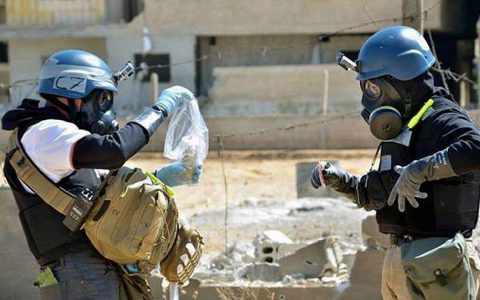
UN investigative team releases new report on Islamic State crimes in Iraq
A UN investigative team said it has made “significant progress” in collecting new sources of evidence in Iraq against the Daesh (ISIL or ISIS) terror group, including over 2 million call records that strengthen cases against perpetrators of crimes against the Izadi minority in 2014.
The team also reported progress in its investigations of the mass killings of unarmed cadets and military personnel from the Tikrit Air Academy in June 2014 and crimes committed by Daesh terrorists in Mosul from 2014 to 2016, AP reported.
In a report to the UN Security Council, the investigative team said it is continuing to engage with the Iraqi government on pending legislation that would allow the country to prosecute war crimes, crimes against humanity and genocide committed by Daesh.
“In the coming six months, the team will continue its work with the government of Iraq in order to capitalize on this opportunity, with a view to securing the commencement of domestic proceedings based on evidence collected by the team,” the report said.
The latest report by the investigative team said that as a result of its expanded cooperation with the Iraqi judiciary, security services and Directorate of Military Intelligence, it stands “at a pivotal moment in its work.”
Cooperation with the Iraqi judiciary in obtaining call data records and with Iraqi security services in extracting and analyzing data from cellphones, SIM cards and mass storage devices previously used by Daesh “have the potential to represent a paradigm shift in the prosecution of ISIL members,” the investigators said.
The data has provided “access to a wide range of internal ISIL documents, cell data, videos and images,” they said.
The team said it is already identifying evidence that can fill gaps in ongoing proceedings as a result of the cell phone data as well as from putting documents held by Iraqi authorities in digital form, and using enhanced discovery and evidence-management systems.
As for the investigation into the mass killings at the Tikrit Air Academy in June 2014, the team said its work has been helped by continuing cooperation from the Iraqi national commission established to investigate the crimes, including reports on the exhumations and autopsies of victims. The team said it has also obtained accounts from survivors and is seeking additional call data records.
The investigators said cooperation with Iraqi domestic courts and non-governmental organizations has further advanced its collection of evidence of Daesh crimes in Mosul between 2014 and 2016. Exhumations at two mass grave sites close to Mosul that began in March have been temporarily halted due to the COVID-19 outbreak and “will provide a significant focus of upcoming investigative activity,” the team said.
Looking ahead, the team said it has established two additional field investigation units to look into crimes committed by the terror group against Christian, Kakai, Shaba, Sunni and Turkmen Shiite communities in Iraq.
Source: Abna 24





